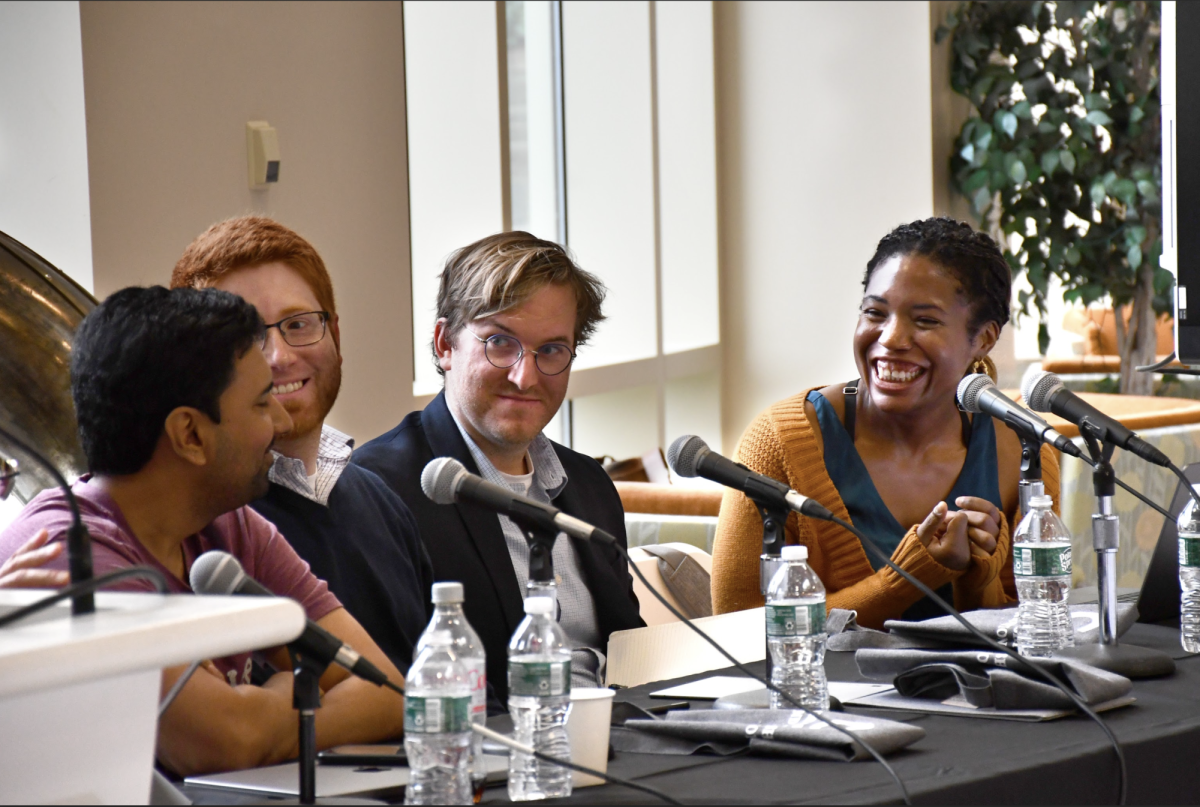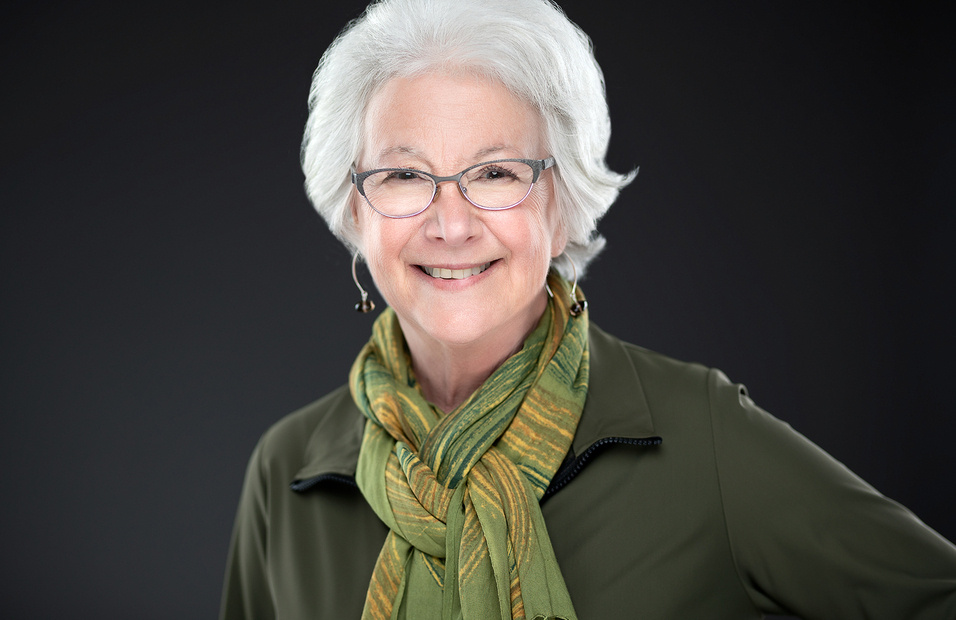The Colgate University Office of Entrepreneurship and Innovation debuted its 2023-24 Thought Into Action program on Saturday, Sept. 23 with an expert panel discussing the impacts of Generative Artificial Intelligence (Gen AI) on personal and professional life. The event — the first of the “Grand Challenge” sessions — was held as part of TIA’s Kickoff Weekend.
The panel included three Colgate faculty members: Assistant Professors of Computer Science Forrest Davis and Nick Diana; Assistant Professor of Film and Media Studies Ashleigh Cassemere-Stanfield; and alumni Gaurav Ragtah ’13, CEO and co-founder of Catalyze X, an AI code search engine based in Oakland, California.
The conversation, facilitated by Entrepreneur-in-Residence Travis Millman, celebrated the opportunities and mitigated the risks that AI presents. The Office of Entrepreneurship and Innovation hopes attendees — especially student entrepreneurs — saw how powerful AI can streamline productivity across various industries.
Milman, who mentors Colgate’s aspiring entrepreneurs, encouraged students to keep learning about this technology.
“In a world of ever-accelerating technological progress and societal change, being up to speed on this topic will prove to be an enormous advantage,” Milman said. “There’s so much opportunity to do new things and old things in new ways.”
Panelists highlighted speedy data processing, analyzing data to find potential weaknesses in the workplace, first drafts, brainstorming, designing media content, brand development and app-building as some of AI’s strengths, but made it clear the human eye was still necessary.
Ragtah compared AI’s capabilities to that of an intern.
“You shouldn’t really trust it for important final decisions, but it’s good to play off of when you have writer’s block and need to get hundreds of ideas super quickly. That’s when it becomes super helpful to have not just your own capacity,” Ragtah said.
The panelists spoke passionately about AI’s capability for good but did not hesitate to warn the audience of its pitfalls. Cassemere-Stanfield urged people to be cognizant of AI’s biases, even though many AI platforms are marketed as objective, fact-finding tools. She spoke specifically about AI’s limitations as a non-human entity.
“Imagining is more than vomiting words. It’s the ability to take oneself in context and theorize on the fly. It’s the ability to create a problem that no one can answer or has thought to answer before.” Cassemere-Stanfield said.
“AI can’t imagine a new world. It was trained on data from the status quo,” Diana added.
Panelists agreed that AI, just like any powerful tool, can be exploited for evil. Misinformation, impersonation, cheating, crime, biased information and fabricated outputs are a few of the abuses they discussed. According to Ragtah, abuses become immensely more dangerous when they go unchecked, which is why so many are calling for government and industrial regulation of AI. On Sept. 13, Elon Musk, Mark Zuckerberg, Sundar Pichai and other top tech executives held a three-hour closed-door meeting with Washington, D.C., lawmakers to discuss a temporary moratorium on AI development.
As a professional in the Gen AI industry, Ragtah sees the rapid pace at which this technology is developing. He placed particular emphasis on the importance of user responsibility and regulation.
“There’s a huge downside if you’re not aware of how you’re using it, but if you’re careful, you can do incredible things,” Ragtah said. “It’s like nuclear energy.”
First-year London Pettibone left the panel with a changed perspective on AI.
“AI used to feel like an aloof, abstract concept to me, but I’m starting to realize its profound relevance to me and all young people,” Pettibone said. “As someone who wants to run my own business, I feel like I’ll have to incorporate AI into my company’s framework – day-to-day and big picture – if I want to have a shot at success.”
This panel was the first of four “Grand Challenge” sessions hosted by the Office of Entrepreneurship and Innovation. The second and third sessions will focus on sustainability and mental health, respectively. In the future, Millman wants students to help determine what the final Grand Challenge session will focus on.













